As rattled as they may have been by an armed insurrection in a nuclear-weapons state, Russia’s friends and business partners are unlikely to abandon Vladimir Putin, according to diplomats and analysts. The more likely scenario, they say, is for them to hedge their bets against further Russian instability, The New York Times reports.
“I’m not surprised at any of those public statements,” said Michael A. McFaul, a former American ambassador to Russia. “It’s not in our interest or anyone’s else interest to stir things up. But privately, if your goal is stability, then you should be worried about Putin’s ability to provide this stability.”
In the language of chess, Putin is in zugzwang. Any move he makes looks set to worsen his position, one analyst suggests.
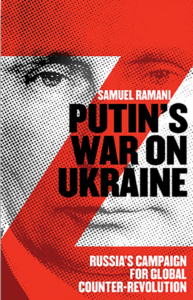 Mercenary warlord Yevgeny Prigozhin’s uprising has exposed Putin’s regime as extraordinarily weak and showed Russia’s democratic opposition should prepare now to take advantage of similar opportunities, according to democratic oppositionist Mikhail Khodorkovsky.
Mercenary warlord Yevgeny Prigozhin’s uprising has exposed Putin’s regime as extraordinarily weak and showed Russia’s democratic opposition should prepare now to take advantage of similar opportunities, according to democratic oppositionist Mikhail Khodorkovsky.
“A change in regime has become far more possible,” Khodorkovsky told ABC News. “We are far closer than two days ago. It has completely clearly demonstrated to everyone and to the democratic opposition, that the regime is weak, that it’s possible to use that weakness, that the regime in practically on the floor.”
The West should bet big on Russia’s democratic opposition and grant it agency, so that when the regime implodes we are capable of seizing the moment, he writes for The Economist. Western powers should recognise our opposition institutions, such as the Russian Action Committee, as legitimate representatives of Russian society, enabling us to better compete with the militarised “national patriots” in the Prigozhin mould.
Putin’s reliance on the Wagner Group “allowed him to create an alternative power vertical that consolidated his personal grip on security policy” and “shielded Putin from a palace coup when the war did not proceed according to plan,” Samuel Ramani writes in Putin’s War on Ukraine: Russia’s Campaign for Global Counter-Revolution (above). How times change.
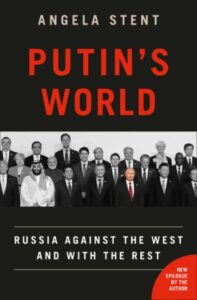
In the past, Putin has responded to challenges with crackdowns and purges, VOX reports. “I think we have to see: are there going to be more repressive measures? Are some more heads going to roll? I think it’s too early to tell that yet,” said Angela Stent, a senior fellow at the Brookings Institute and author of Putin’s World: Russia Against the West and with the Rest.
In past conversations with Western leaders, Putin made little effort to hide his contempt for what he saw as the unsteadiness of political leadership in democracies. He bet that the U.S. and Europe would be unable to stomach the costs of a prolonged war in Ukraine, The Wall Street Journal adds.
“Putin thought he could play a long game, not seeking an outcome until the next American presidential election,” said Francois Heisbourg, a former French official and adviser to the Foundation for Strategic Research, a Paris think tank. “Until last Saturday, the jury was out. Now the probability is that Russia will fold before the West does.”
Others warn that Wagner’s revolt could also prove to be an exception, not the new rule. “Putin hasn’t lost his nerve, nor the support of his security forces,” said Richard Haass, head of the Council on Foreign Relations and a former U.S. official. “I think Putin is still in a position to play for time.”
In the end, a tangible alternative to Mr. Putin came not from the liberal and democratic camp, not from the dissidents and civil organizations that have been brutally persecuted by his regime, but from the deepest core of Mr. Putin’s own system, according to Andrei Kolesnikov, a senior fellow at the Carnegie Russia Eurasia Center and a former managing editor of the Russian newspaper Novaya Gazeta. This is why he called the mutiny a “stab in the back.” It took the ultimate insider to show the cracks in the system.
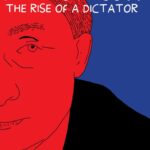 Nevertheless, the revolt gave the world a rare window into the Russian state’s slow decline, he writes for The Times. No state with functioning institutions can thrive while in pursuit of senseless military expansionism that contradicts the meaning of democratic and civic values, the most important of which is human life.
Nevertheless, the revolt gave the world a rare window into the Russian state’s slow decline, he writes for The Times. No state with functioning institutions can thrive while in pursuit of senseless military expansionism that contradicts the meaning of democratic and civic values, the most important of which is human life.
Kolesnikov predicted that Putin’s likely response to the internal divisions would be a new crackdown, The Post adds.
“It is likely that Putin’s suspicion of internal enemies and repression of dissenters will intensify — although they have consistently intensified without reason,” Kolesnikov said. “And his desire to continue the war will not cool down. The elite, despite the understanding that the system is weaker and alternative forces are possible, will consolidate around Putin, scared of him and his suspicion.”
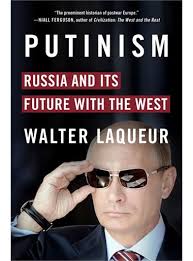 Prigozhin’s mutiny has already inspired a spate of historical analogies, note Liana Fix, a Fellow for Europe at the Council on Foreign Relations, and Michael Kimmage, Professor of History at the Catholic University of America. Perhaps this is Russia in 1905, the small revolution before the big one. Or perhaps it is Russia in February 1917, under political duress because of a war, as Putin himself alluded to. Maybe it is the Soviet Union in 1991, making Putin into a version of Gorbachev, someone destined to lose an empire, they write for Foreign Affairs:
Prigozhin’s mutiny has already inspired a spate of historical analogies, note Liana Fix, a Fellow for Europe at the Council on Foreign Relations, and Michael Kimmage, Professor of History at the Catholic University of America. Perhaps this is Russia in 1905, the small revolution before the big one. Or perhaps it is Russia in February 1917, under political duress because of a war, as Putin himself alluded to. Maybe it is the Soviet Union in 1991, making Putin into a version of Gorbachev, someone destined to lose an empire, they write for Foreign Affairs:
A better analogy places Prigozhin in the role of Stenka Razin, a rebel against tsarist power who mustered an army of peasants and attempted to march on Moscow from southern Russia in 1670–71. Razin was eventually apprehended and quartered on Red Square. But he became a fixture of Russian political folklore. He had revealed weakness in the tsarist government of his time, and in the centuries to come, others took inspiration from his story. For Russia’s autocrats, it holds a clear lesson: even an unsuccessful rebellion plants the seed for future attempts.
Ukrainian historian Serhii Plokhy notes that one effect of the invasion is already clear, Thomas Ricks writes for The Times: “The Ukrainian nation will emerge from this war more united and certain of its identity than at any other point in its modern history.”
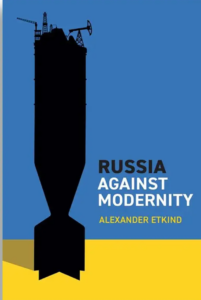 Alexander Etkind’s Russia Against Modernity depicts Putin’s invasion as “a war between generations,” noting that Ukraine’s cabinet is mostly made up of people under the age of 50, while most of Russia’s cabinet members are older, Ricks adds. He suggests that the officials who run Putin’s Russia know they cannot compete in a post-petroleum world, and so they are threatened by all aspects of modernity, from democracy to climate change to tolerance for homosexuality. Etkind portrays Russia’s leaders as living fossils living on fossil fuels. He has a point: When was the last time anyone bought a computer chip made in Russia?
Alexander Etkind’s Russia Against Modernity depicts Putin’s invasion as “a war between generations,” noting that Ukraine’s cabinet is mostly made up of people under the age of 50, while most of Russia’s cabinet members are older, Ricks adds. He suggests that the officials who run Putin’s Russia know they cannot compete in a post-petroleum world, and so they are threatened by all aspects of modernity, from democracy to climate change to tolerance for homosexuality. Etkind portrays Russia’s leaders as living fossils living on fossil fuels. He has a point: When was the last time anyone bought a computer chip made in Russia?
Recent events also give food for thought to other autocrats like China’s Xi Jinping, analysts suggest.
“Xi’s worst-case scenario is a weak Putin that loses the war and ultimately gets ousted,” said Evan S. Medeiros, a professor of Asian studies at Georgetown University. “A weak Russia denies China an ally in its competition with the U.S. and, perhaps worse, leaves Xi isolated globally and under pressure from democracies.”
Putin congratulates Russian army because they “stopped a civil war,” Anne Applebaum tweeted. Now begins the process of trying to convince people that what they saw on Saturday – the Wagner group driving through Russia almost unhindered – didn’t happen.
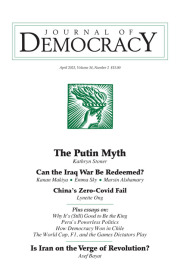 Vladimir Putin just survived the most serious threat to his more than two decades of autocratic rule, The Journal of Democracy observes. But Yevgeny Prigozhin has left Russia’s autocrat appearing weaker and more humiliated before the world—and the Russian people—than ever before.
Vladimir Putin just survived the most serious threat to his more than two decades of autocratic rule, The Journal of Democracy observes. But Yevgeny Prigozhin has left Russia’s autocrat appearing weaker and more humiliated before the world—and the Russian people—than ever before.
A jarring challenge to the Kremlin’s control seems to have been staved off. But the damage to Putin’s image and authority may be lasting, The Post reports.
“For Putin, it was a failure that the special military operation collapsed,” said Sergei Markov, a Kremlin-connected ‘political technologist‘ known for his hawkish views. “It was a failure that the West totally and firmly joined this war, and now it is a total failure that the most battle-ready part of the Russian armed forces turned against him, and the Russian authorities.”
When Russia first launched its invasion of Ukraine last year, experts said that the war had the potential to undermine his hold on power, The Times adds.
“The relationship between authoritarian rulers and their core of elite supporters can be strained when dictators wage war abroad — particularly where elites view the conflict as misguided,” said Erica de Bruin, a political scientist at Hamilton College and the author of a recent book on coups.
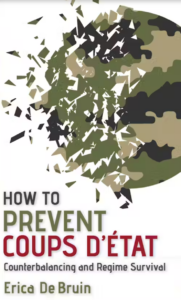 Regime change in Russia is desirable, as President Biden said more than a year ago. We know what a nightmare and threat Putin is, notes David J. Kramer, Executive Director of the George W. Bush Institute and former Deputy Assistant Secretary of State for European & Eurasian Affairs. But we don’t know what might come after him. Prigozhin or someone like him would not be any better. There are no good guys, other than the Ukrainians, in this latest saga. This means that regime change shouldn’t be official U.S. policy, even if we might want to see it come to fruition, he writes.
Regime change in Russia is desirable, as President Biden said more than a year ago. We know what a nightmare and threat Putin is, notes David J. Kramer, Executive Director of the George W. Bush Institute and former Deputy Assistant Secretary of State for European & Eurasian Affairs. But we don’t know what might come after him. Prigozhin or someone like him would not be any better. There are no good guys, other than the Ukrainians, in this latest saga. This means that regime change shouldn’t be official U.S. policy, even if we might want to see it come to fruition, he writes.
While liberal democracies are designed to be adaptive, flexible or resilient under stress, Russian autocracy is like marble, extremely strong, but also very brittle, Jonah Goldberg writes for The LA Times. That’s why cracks in the perception of power, often after military setbacks, can quickly lead to real collapses in power.
The lack of resistance to Prigozhin’s rebellion from local military units in Rostov-on-Don (a staging ground for Russian forces in Ukraine) indicates that some in the Russian military might at least passively agree that the war has been disastrous and a change in leadership might be good, says Kathryn Stoner, the Mosbacher Director of the Center on Democracy, Development and the Rule of Law at Stanford’s Freeman Spogli Institute. Putin’s offer to drop treason charges against Prigozhin if he left the country permanently might thus be aimed at preventing him from leading a broader armed military uprising in the future.
Clearly there is much still to learn about all that has transpired, but one thing is certain: Putin’s ill-considered war in Ukraine has weakened his grip on Russia. Nor is this the end of his troubles, she writes for the JOD.
#Putin’s offer to drop treason charges against #Prigozhin if he left the country permanently might thus be aimed at preventing him from leading a broader armed military uprising in the future, @kath_stoner @StanfordCDDRL writes for @JoDemocracy.https://t.co/jYW2VgqpLQ
— Democracy Digest (@demdigest) June 27, 2023
In an authoritarian system, loyalty to the leader relates directly to their perceived influence and authority. Power is maintained by ensuring the loyalty of institutions that control the state’s instruments of violence and repression, adds Chatham House expert John Lough. With his war on Ukraine already proceeding badly for the Russian army, Putin now cannot rely on the execution of his orders. They may be sabotaged or simply not carried out.
Before he made his moves, [Prigozhin] was declared a traitor, his offices were raided, and his bases shelled. But the Russian state is inept and decrepit, notes strategist Lawrence Freedman. If the aim was to catch Prigozhin unawares and shut him up it failed, because he appears to have had some notice of what was being prepared for him and so took his own initiatives. If you are going to move against your opponents you need to be decisive. Prigozhin got away (like Zelensky in February 2022).
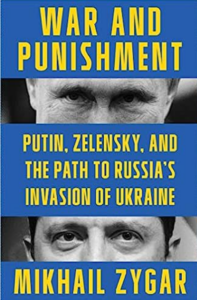 If Putin were to fall, he could be succeeded by extremely hard-line elements supported by the security services, or a “relatively” more liberal clan represented by Prime Minister Mikhail Mishustin and the mayor of Moscow, Sergey Sobyanin, says Mikhail Zygar, a former editor-in-chief of TV Rain (Dozhd in Russian) and author of “All the Kremlin’s Men” and the forthcoming “War and Punishment: Putin, Zelensky, and the Path to Russia’s Invasion of Ukraine.”
If Putin were to fall, he could be succeeded by extremely hard-line elements supported by the security services, or a “relatively” more liberal clan represented by Prime Minister Mikhail Mishustin and the mayor of Moscow, Sergey Sobyanin, says Mikhail Zygar, a former editor-in-chief of TV Rain (Dozhd in Russian) and author of “All the Kremlin’s Men” and the forthcoming “War and Punishment: Putin, Zelensky, and the Path to Russia’s Invasion of Ukraine.”
In ideological terms, “Prigozhin combines two ideas,” he tells The New Yorker’s David Remnick. “The first is anti-corruption and anti-oligarch. Despite his own wealth, which is immense, he always portrayed himself as the oligarch-fighter. At the same time, he is super illiberal. He hates the West, and he claims to be the real protector of traditional values. He probably has more supporters beyond the Wagner Group; there are people in the Army, the F.S.B., the Interior Ministry, who could be his ideological allies.”
Prigozhin’s challenge to Moscow is another symptom of the rotting of Putin’s regime. according to Zoltan Barany, author of Democratic Breakdown and the Decline of the Russian Military. The rebellion is unlikely to bring down the regime, but it has shaken it and hopefully will create doubts in more Russian minds about its sustainability, he writes for The Journal of Democracy.
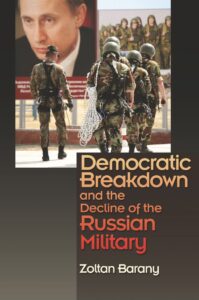
Russia’s “patriotic majority” has always suspected the country’s affluent rulers and private business elites of being indifferent to national interests and ordinary people. This was precisely Prigozhin’s claim, and it will continue to have resonance despite his apparent sidelining, argues Alexander Baunov, a senior fellow at the Carnegie Russia Eurasia Center, Berlin.
Putin will have to either continue to act in the precarious role of protector of the “corrupted elite” or, under pressure from the events of last weekend, embark on a purge of that elite, he writes for The Financial Times. In this sense Prigozhin’s adventure may spell the end not only of the current form of Putin’s regime, but with it, the entire legacy of post-Soviet Russia.
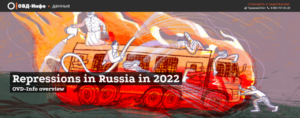
Credit: OVD-Info
During Russia’s transition from democracy to authoritarianism to hybrid totalitarianism, Mr. Putin and his elite inner circle have colonized civil society and built a system of repression, Carnegie’s Kolesnikov writes for The Times. This is not a sign of strength, but of desperation. And the outsourcing of critical government functions, like the military role handed to Mr. Prigozhin and his Wagner force, is a glaring manifestation of that weakness.
Now is not the time to avoid asking difficult questions about Russia’s future, says Luke Coffey, a senior fellow at the Hudson Institute. It is high time to prepare for the possibility that Putin will lose his grip on power, a transition might not be peaceful, and that Russia’s borders could look very different on a map in 10 or 20 years. The West needs to recognize the historical magnitude of the political dynamic set off by Putin’s war in Ukraine and start planning accordingly, he writes for Foreign Policy.
The disastrous war in Ukraine, the slow strangulation of Western sanctions, and now the brazen challenge by Prigozhin have all shown that the old formula of payoffs and blackmail that Putin has used to rule Russia for more than two decades is failing to hold the regime together, adds Robert Person, associate professor of international relations at the U.S. Military Academy. Regardless of whether he survives the present challenge, there is no doubt that his once-unquestioned control is substantially diminished, a fact that cannot be ignored by his friends or his foes, the former of whom seem to be dwindling by the hour, he writes for the JOD.
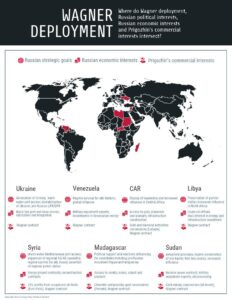
Foreign Policy Research Institute
The Wagner crisis has nonetheless revealed the hidden instability of Putin’s regime and shaken his aura of power, analyst Max Boot writes for The Washington Post. It could still create opportunities for a Ukrainian counteroffensive that, so far, has been only inching along. If the Russians are distracted with infighting, Ukraine might have the opportunity to score more battlefield successes — and that in turn could further undermine Putin’s hold on power.
“The most important thing we learn from this very strange sequence of events is that Putin is far weaker than we thought, and his regime is much more fragile than we thought,” CEPA expert Alina Polyakova tells PBS Newshour’s Geoff Bennett (above).
Putin’s rush to find a deal to defuse the Prigozhin threat revealed a crucial weakness that counters the conventional wisdom that the Russian leader needs an “off ramp” that allows him to claim victory in order to bring the war to an end, said former U.S. Ambassador to Russia McFaul.
“Putin talked tough in his national address. He sounded like someone preparing for a big fight. But when faced with the difficult decision of trying to stop Wagner mercenaries with major force, he backed down,” McFaul Tweeted. “He didn’t escalate. He didn’t need a face-saving off-ramp to declare victory. When facing the possibility of really losing to Wagner mercenaries coming into Moscow, he just capitulated.”
 “The lesson for the war in Ukraine is clear. Putin is more likely to negotiate and end his war if he is losing on the battlefield,” he said. “Those who have argued that Ukraine must not attack Crimea for fear of triggering escalation must now reevaluate that hypothesis.’
“The lesson for the war in Ukraine is clear. Putin is more likely to negotiate and end his war if he is losing on the battlefield,” he said. “Those who have argued that Ukraine must not attack Crimea for fear of triggering escalation must now reevaluate that hypothesis.’
Wars abroad have a way of unleashing uncontrollable political processes at home, The New Yorker’s Joshu Yaffa observes:
Power everywhere, but especially in an autocracy such as Putin’s Russia, is ultimately a myth—a kind of collective agreement, often subconscious, to acknowledge and abide by the authority of a given individual. Putin, at least for now, appears to have put down the Prigozhin coup, but the myth that undergirds his rule will have taken its most serious hit yet, and the echoes of 1917 may prove far closer than Putin would like to imagine.
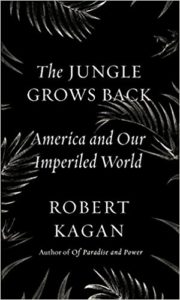 And these are more than abstractions, says analyst Matthew D’Ancona. In the past few days, we have seen what a failed superpower looks like as its institutions are replaced by murderous cults of personality and conspiracy theories; as the rule of law is swept away by permanent battle between gangster armies; as might displaces right absolutely and at every level of society. Is that a future in which we want to be complicit?
And these are more than abstractions, says analyst Matthew D’Ancona. In the past few days, we have seen what a failed superpower looks like as its institutions are replaced by murderous cults of personality and conspiracy theories; as the rule of law is swept away by permanent battle between gangster armies; as might displaces right absolutely and at every level of society. Is that a future in which we want to be complicit?
As Robert T Kagan argues in his indispensable 2018 guide to contemporary geopolitics, The Jungle Grows Back: America and Our Imperilled World, it is simply not a credible option to avert our gaze or bury our heads in the sand, he writes for The New European: “The liberal order is as precarious as it is precious. It is a garden that needs constant tending less the jungle grow back and engulf us all”.
In general, the Putin regime, like all totalitarian regimes, aims to prevent people from thinking, The New Yorker’s Masha Gessen writes. But this past weekend Russians—not just the Russians who consume independent media but all Russians who watch any TV or read or watch anything online—saw something extraordinary. They saw real political conflict. They saw someone other than Putin act politically and—even more important—wield force. Can all the propagandists and censors make them unsee it? They will try. Russians should probably gear up for an extreme information crackdown.
In the end, a tangible alternative to #Putin came not from the liberal democratic dissidents & civil organizations brutally persecuted by his regime, but from the deepest core of his own system, @CarnegieEndow‘s @AndrKolesnikov writes @nytimes. https://t.co/6A87snvIwz
— Democracy Digest (@demdigest) June 27, 2023
The biggest threat to any authoritarian is one from within, adds analyst Elliott Ackerman. An autocrat considers his decision to wage war alongside his appreciation for whether that war will consolidate or weaken his power, he writes for The Atlantic. Putin’s troubles in Ukraine are already a cautionary tale for autocrats the world over. This latest chapter highlights the existential threat from within that hired armies pose. Strategists in Beijing, Tehran, and elsewhere will likely be redrafting aspects of their war plans.
The war in Ukraine witnessed unprecedented unity among EU member states and a coordinated approach on assistance and sanctions, GLOBSEC opinion polling shows that European unity is fragile and divisions within and between CEE states – Bulgaria, Czechia, Hungary, Latvia, Lithuania, Poland, Romania, and Slovakia – are testing resilience, a National Endowment for Democracy (NED) forum heard today (below).
Finally, what do we call what happened? the Institute’s Kramer asks. A coup attempt, a mutiny, or an insurrection? All of the above. Prigozhin rallied his forces to threaten to remove one of the key positions Putin has direct authority to appoint – the defense minister. In doing so, his forces seized military assets and attacked military aircraft. That is certainly a mutiny and an insurrection. But it also is an attempted coup d’état. Had Prigozhin succeeded, he would have neutered Putin’s power, even if he didn’t intend to physically remove him. This act would have amounted to a regime change.
Putin’s troubles in #Ukraine are already a cautionary tale for #autocrats the world over, @elliotackerman writes for @TheAtlantic. This latest chapter highlights the existential threat from within that hired armies pose. https://t.co/pCG719uTO8
— Democracy Digest (@demdigest) June 27, 2023







